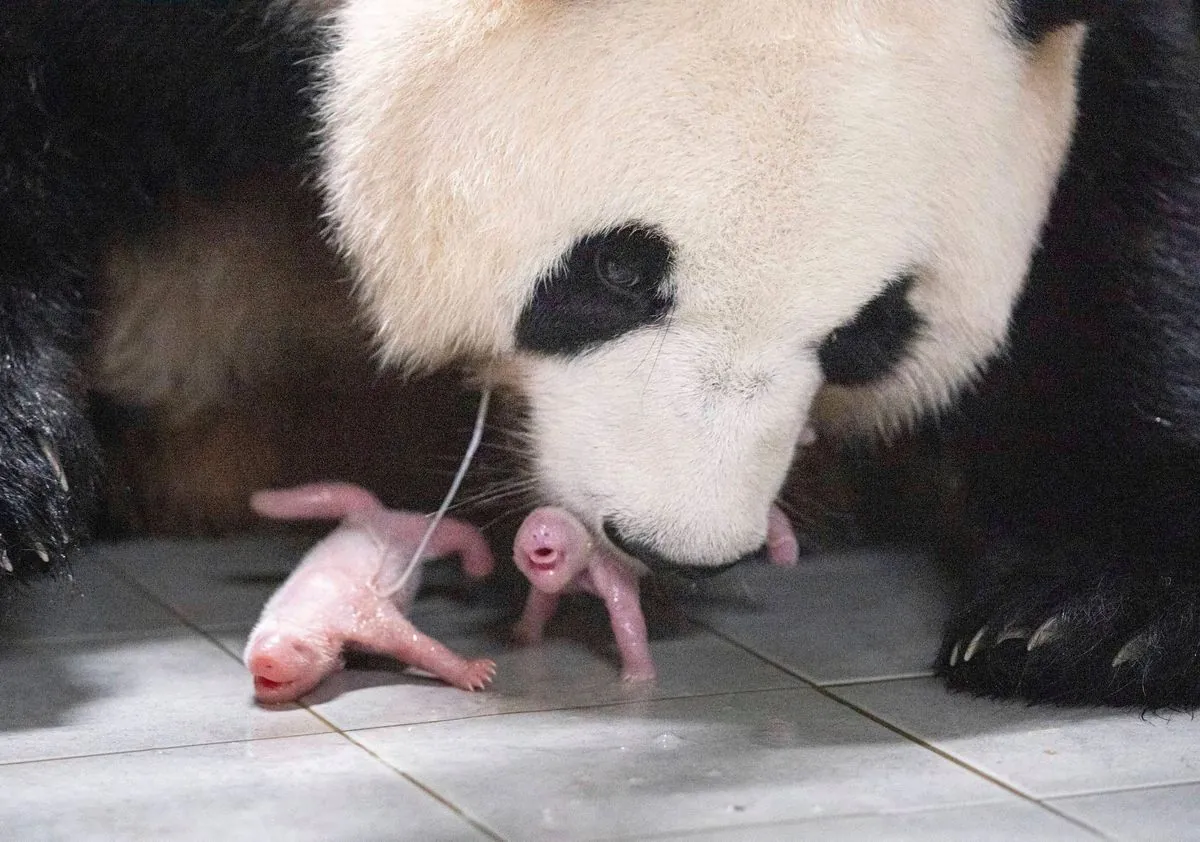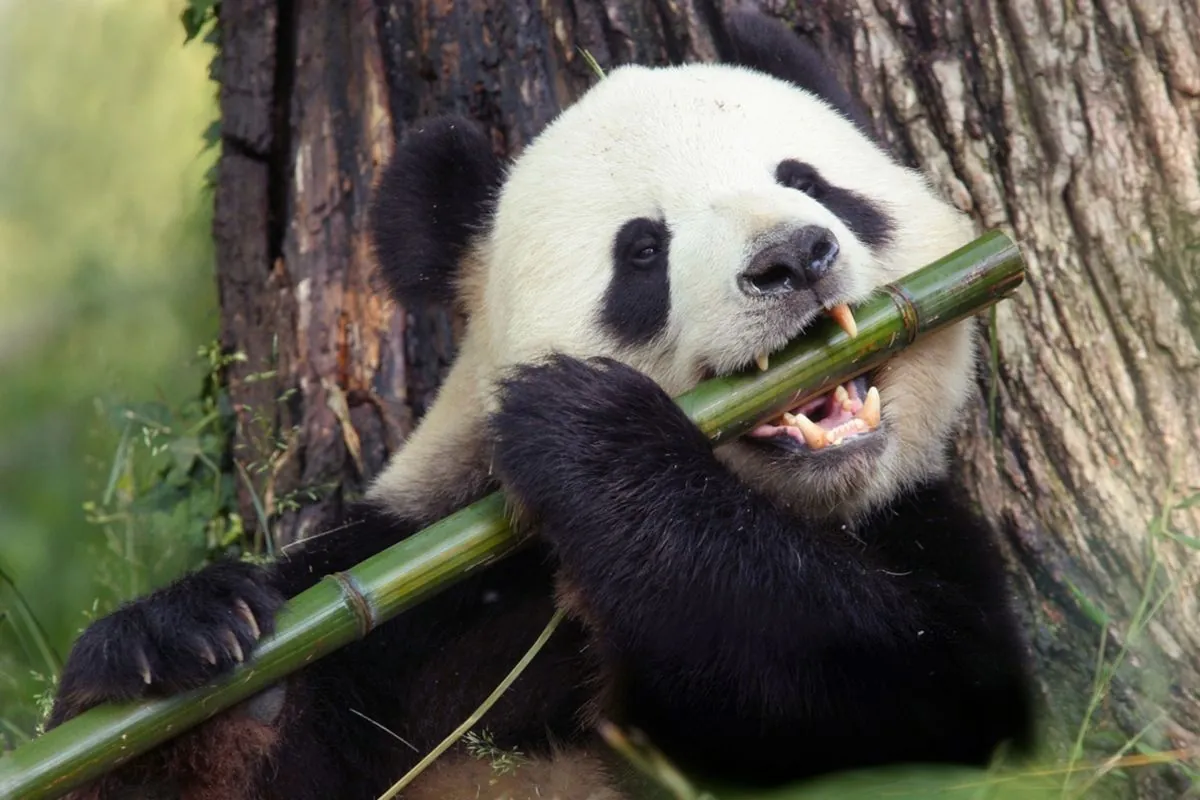Berlin Zoo Celebrates Birth of Giant Panda Twins, Again
Berlin Zoo's giant panda Meng Meng has given birth to twins for the second time. The cubs, born on Thursday, are healthy but face critical first days. This event marks another success in panda conservation efforts.

Berlin Zoo has announced a joyous event: Meng Meng, their resident giant panda, has given birth to twins for the second time. The cubs arrived on Thursday, August 22, 2024, merely 11 days after ultrasound scans confirmed the pregnancy. This occurrence is particularly noteworthy given the challenges associated with panda reproduction.
The newborns are remarkably small, weighing 169 grams and 136 grams respectively, and measuring approximately 14 centimeters in length. Their diminutive size is not unusual, as newborn pandas are typically about 1/900th the size of their mother. The zoo has not yet determined the sex of the cubs with certainty.
Meng Meng, now 11 years old, and her mate Jiao Qing have been residents of Berlin Zoo since 2017. This is not their first successful breeding; in August 2019, Meng Meng gave birth to another set of twins, named Pit and Paule (also known by their Chinese names Meng Xiang and Meng Yuan). These were the first giant pandas born in Germany.

Giant pandas, native to south central China, face significant challenges in reproduction. Females are fertile for only about 72 hours per year, making successful breeding attempts rare. In this case, Meng Meng was artificially inseminated in March 2024. The gestation period for giant pandas typically ranges from 95 to 160 days.
It's worth noting that giant panda cubs are born deaf, blind, and pink, with their iconic black-and-white markings developing later. Their diet, which consists of 99% bamboo in adulthood, is facilitated by a unique pseudo-thumb - an enlarged wrist bone that aids in gripping the plant.
The birth of these twins is particularly significant for conservation efforts. While giant pandas were downgraded from "endangered" to "vulnerable" on the IUCN Red List in 2016, their population in the wild remains limited to about 1,800 individuals in China, with a few hundred more in captivity worldwide.
China's panda diplomacy, which dates back to the Tang Dynasty in the 7th century, has evolved over time. Initially, pandas were gifted to friendly nations, but now they are loaned to zoos on commercial terms. This practice has contributed to increased awareness and conservation efforts for this species, which has been China's national animal since 1961.
As the zoo staff closely monitor the critical first few days of the cubs' lives, there is cautious optimism for their future. With a potential lifespan of up to 30 years in captivity, these new additions to the Berlin Zoo family may have a long journey ahead, contributing to both scientific knowledge and public appreciation of this remarkable species.
"Now it's time to keep your fingers crossed for the critical first few days"
The arrival of these twin cubs not only brings joy to the Berlin Zoo but also represents another step forward in the ongoing efforts to preserve and understand the giant panda, a species that continues to captivate people worldwide with its unique characteristics and endearing appearance.


































